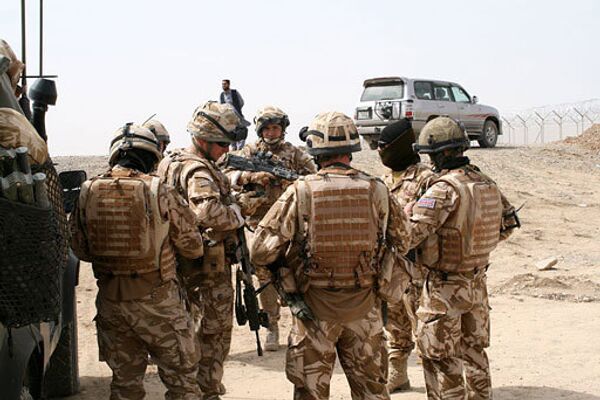Reducing the number of Afghan security forces, army and police, by more than one-third after 2014 could lead Afghanistan to a catastrophe, the Wall Street Journal reported on Saturday quoting Afghanistan’s Defense Minister.
“Going lower [in Afghan troop numbers] has to be based on realities on the ground. Otherwise it will be a disaster, it will be a catastrophe, putting at risk all that we have accomplished together with so much sacrifice in blood and treasure,” Afghanistan’s Defense Minister Abdul Rahim Wardak said.
According to the plans of the Afghan government, the total number of Afghan army and police had to grow to 352,000 people by the fall of 2012. But now the U.S. spends about $11.2 billion per year on this army, which exceeds the entire annual budget of Afghanistan.
The commander of a training mission in Afghanistan, Lt. Gen. Daniel Bolger said recently that the number of Afghan security forces after 2014 should be reduced to 230,000 people, so the funding would be acceptable for both the U.S. and its allies in Afghanistan.
“Nobody at this moment, based on any type of analysis, can predict what will be the security situation in 2014. That's unpredictable,” Wardak said.
The newspaper notes that America's NATO allies are reluctant to fund the bloated Afghan army and police during the global economic crisis. In this regard, the paper quotes a diplomat from a NATO country: “The Americans didn’t ask our advice when they [the U.S.] were building it [afghan security forces] up, and now all of a sudden they want us to pay up.”
“At the moment these forces are built as lighter-than-light infantry,” Wardak said. According to him, sufficient if the security situation in the field improves, if Taliban will go to peace talks on national reconciliation, and Pakistan shuts down insurgent safe havens on its soil, it is possible that a force of 230,000 would be enough. “But if it doesn't then all that we are planning will be in danger. We have to leave some level of flexibility,” Wardak added.
According to the Wall Street Journal, when the U.S. decided to disarm the Iraqi army in 2003, it has led to the fact that the rebel movement in the country increased dramatically due to the fact that the formation of fighters augmented by trained soldiers.


